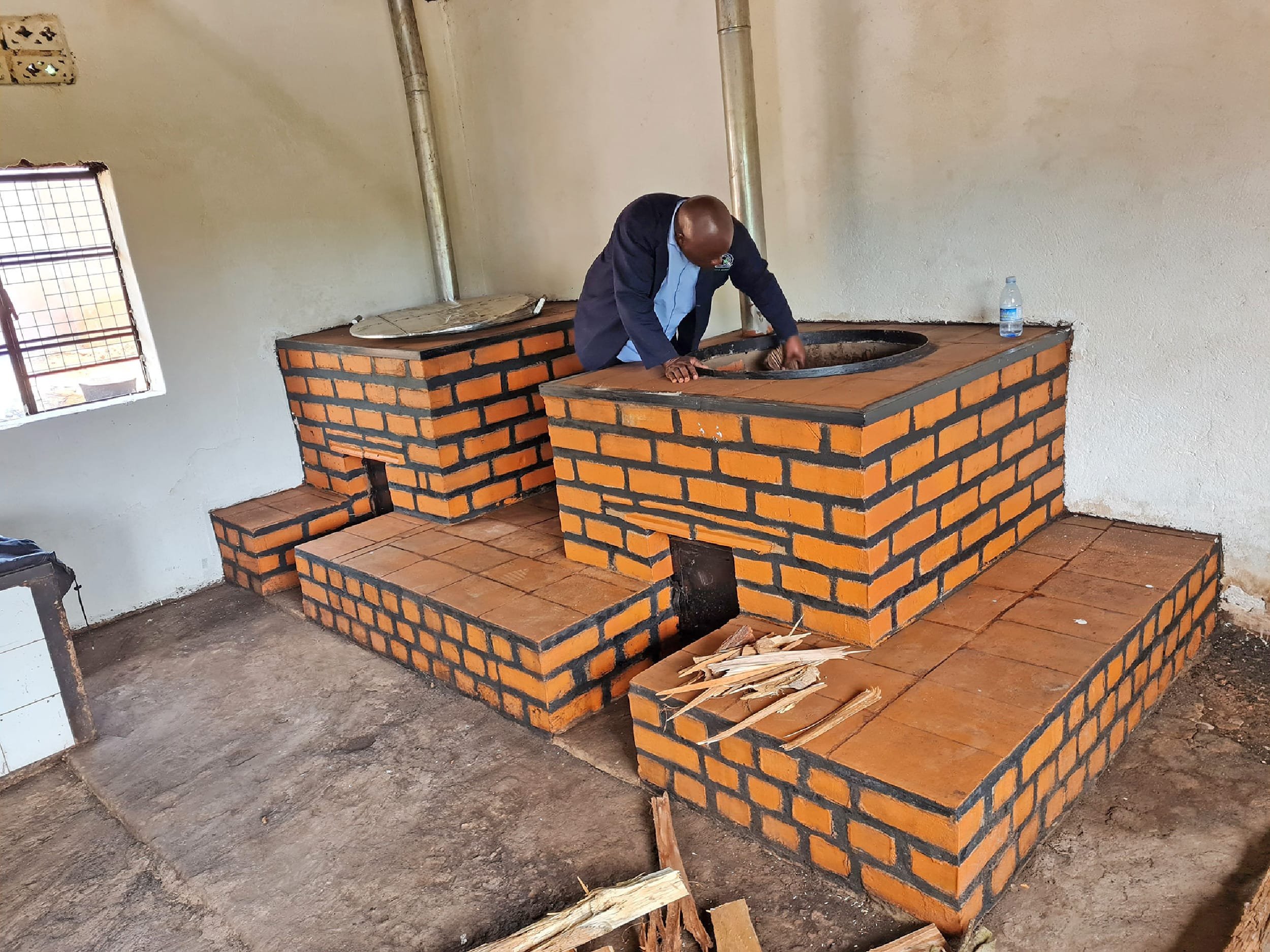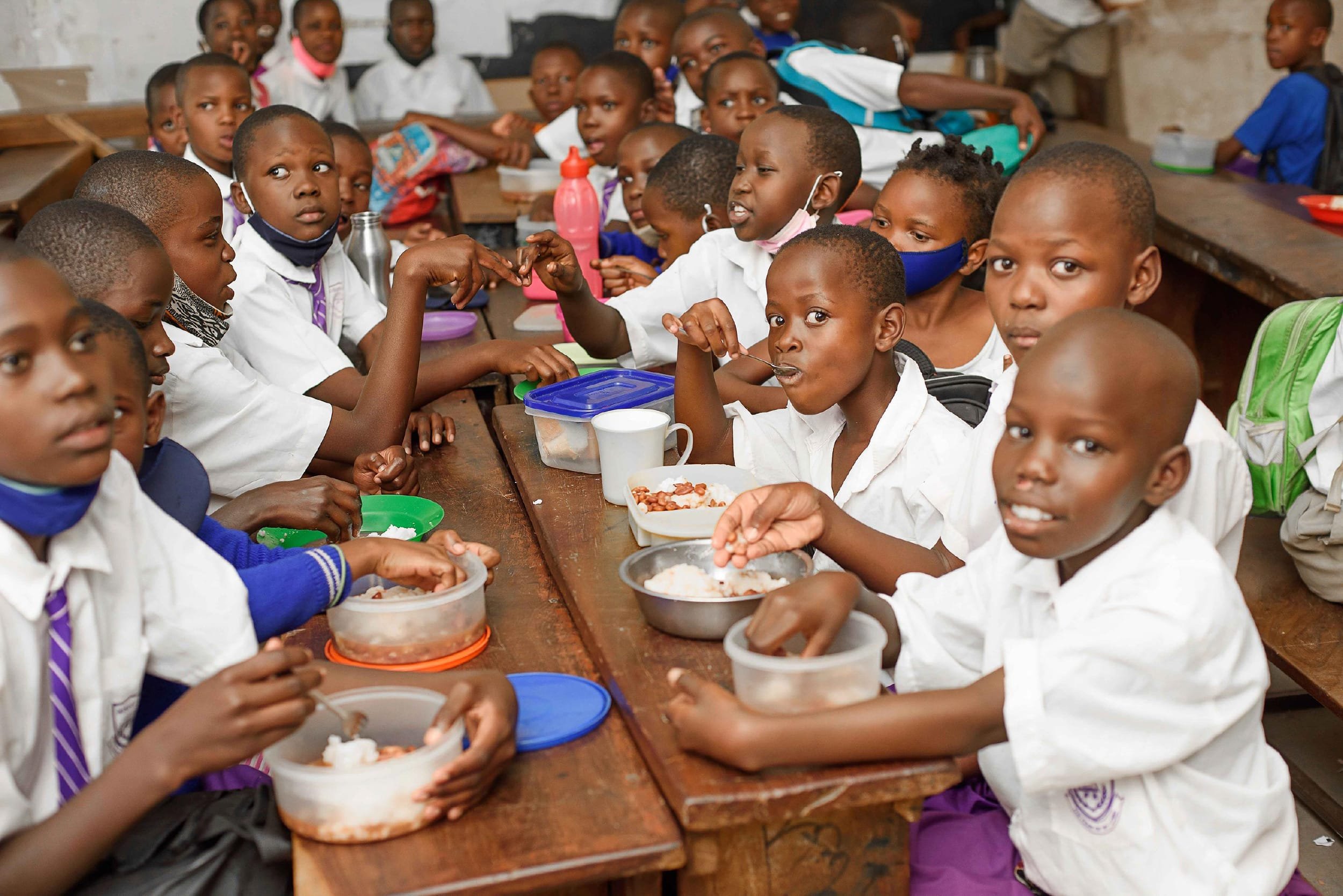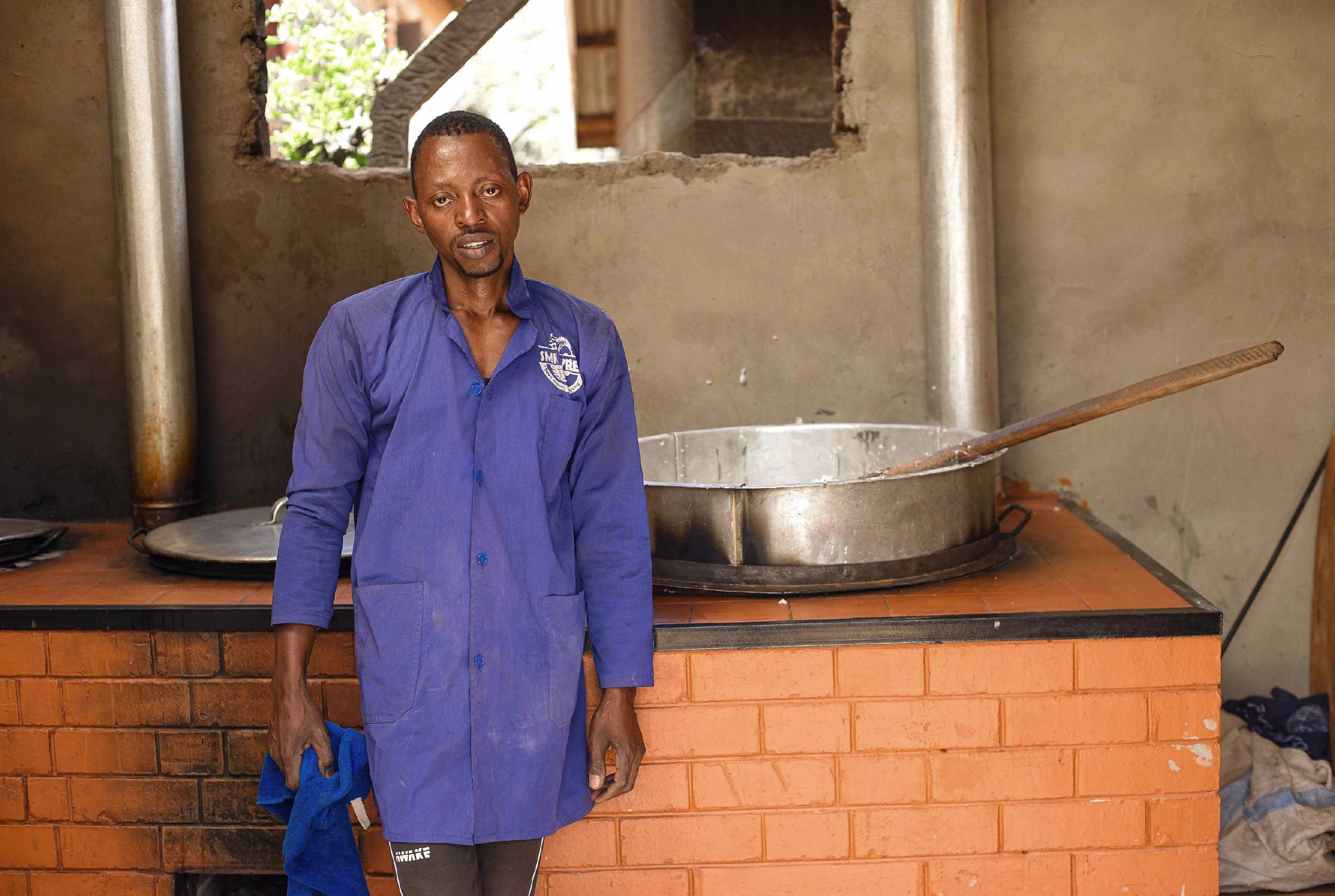Community Cooking:
A Sustainable Approach
Cooking in communities, typically schools and healthcare centers, often relies on traditional, inefficient methods like the three-stone technique. This heavy dependence on biomass, accounting for 90% of energy in such institutions, impacts not just the environment but also educational outcomes.
Project Technology:
Institutional Cleaner Cookstoves
Project Standards:
Project Locations:
In Development
Projects Underway:
In Development
Project Overview:
In sub-Saharan Africa, over 90% of schools depend on wood and charcoal for daily meal preparation, serving hundreds of students. This reliance leads to the consumption of large quantities of mostly locally sourced wood, significantly impacting local forests and contributing to environmental degradation.

Provision of cleaner stoves for schools significantly reduces biomass consumption and provides a safe, clean working environment.
Built-in chimney to remove smoke from kitchen area.
Each chimney will last up to 10 years to ensure longevity and reliability.
Expense saved can be reinvested back into the school.
90% less smoke & soot thanks to ventilation.
Greater thermal efficiency improves cooking results to deliver more available servings per day.
The use of our community stoves reduces firewood use by multiple tonnes per month.

"No more itchy eyes and coughing, and no burns to my body since the stoves are more safe."
Nicholas Tugume, Cook, Naalya Secondary
School, Kampala -Uganda
Impact on Sustainable Development Goals
Community based stoves in school, hospitals, health centers and more can benefit from direct financial savings from avoided wood purchase.
Efficient community stoves drastically improve the respiratory health of cooks and students by installing a chimney to move harmful smoke away from the cooking areas.
By lowering cooking costs in schools with efficient stoves, we make education more affordable, potentially increasing girls' attendance and advancing gender equality.
Communities utilizing improved cookstoves reduce their wood consumption by multiple tonnes.
UpEnergy creates local employment by partnering with manufacturers, installers and directly hiring team members that create sustained job opportunities throughout the project.
Biomass contributes 90% of the energy needs for community institutions. The use of our community stoves reduces firewood use by multiple tonnes per month.
The decrease in demand for firewood for cooking for hundreds, sometimes thousands of children vastly reduces the pressure on local forests, ecosystems, and biodiversity.
See Our Community Cooking Projects in Action!







Let’s Build Something Together
If you'd like to learn more or ask any questions, then do reach out to Polly, our dedicated Climate Finance Manager:
partnerships@upenergygroup.com
UpEnergy is a social enterprise headquartered in Kampala, Uganda.


















